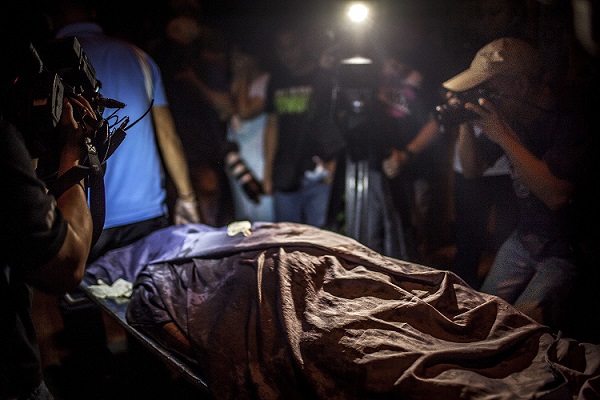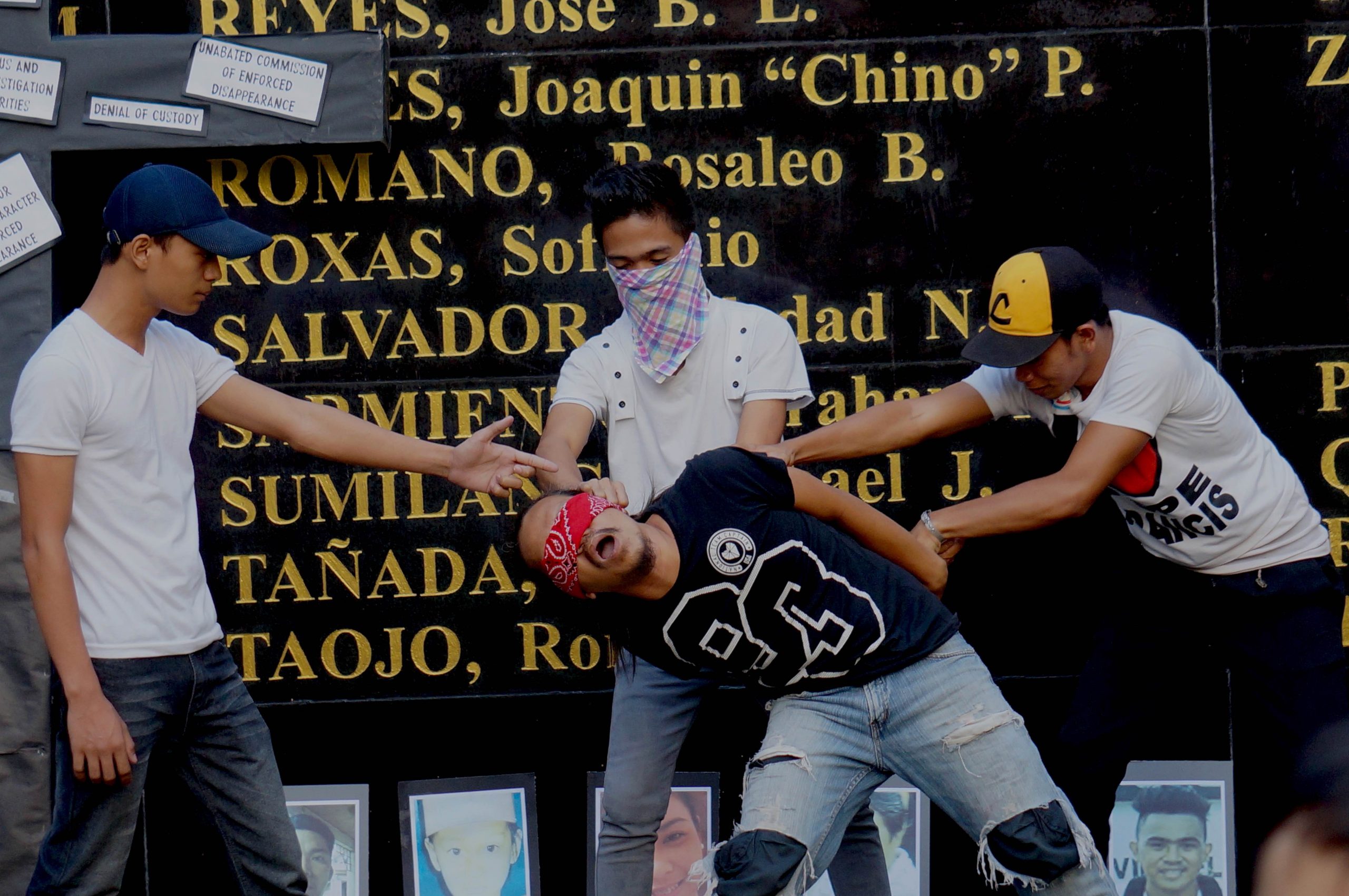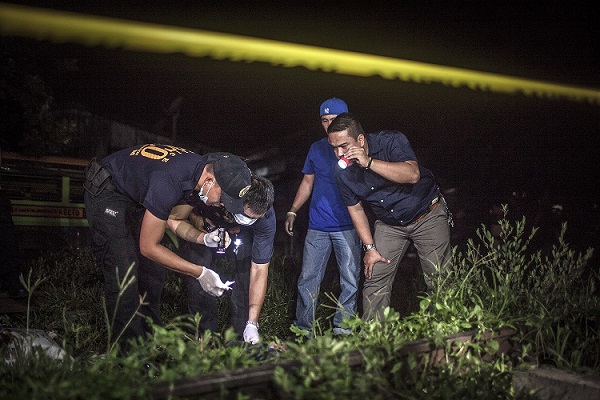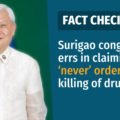
Speaking about the Duterte administration’s war on drugs, newly appointed Palace Spokesperson Harry Roque has alternately used the terms “extra-legal killings” (ELKs) and “extrajudicial killings” (EJKs).
“Extra-legal killings” include killings done without due process, Roque said in a Nov. 4 interview, citing a United Nations definition.
Five days later, he said the government is investigating “allegations of so-called extrajudicial killings” after United States lawmakers urged President Donald Trump to echo concerns on reported EJKs ahead of his visit to the Philippines.
Similarly, protesters and human rights groups use EJKs when referring to the deaths of more than 3,000 people in police anti-drug operations.
What is the correct term to use?
EJKs, ELKs the same—lawyers
Lawyers say the terms are interchangeable, with hardly any difference between them.
“EJK” is the more popular term, but “ELK” is more commonly used in legal documents as it is broader, and “embraces any situation where somebody was killed without due process,” said lawyer Romel Bagares.
The distinction is not between EJK and ELK but between extra-legal or extrajudicial killings and legal or judicial killings, said Jose Manuel Diokno, dean of the De La Salle University Law school.
“Kapag sinabi natin na it’s a ‘legal killing,’ ibig sabihin niyan may approval ng court (When we say it’s a ‘legal killing,’ it means the court has given approval)” he said, as is the case when a country has death penalty.
“Pag sinabi naman natin na (But when we say) extra-legal or extrajudicial killing… either the country does not recognize death penalty, or even if it recognizes death penalty, hindi dumaan sa court (it wasn’t authorized by the court),” he added.
“Legal killings” may still occur even without death penalty, as when police officers argue self-defense to justify killings during legitimate police operations, said lawyer Antonio Gabriel La Viña.
“If you’re able to prove that the police used legitimate force, that cannot be an ‘extra.’ That’s exactly what’s called a ‘judicial’ or ‘legal’ killing,” he said.
In these cases, the state is obliged to investigate to prove that the use of force is justified, otherwise, the killings become “state-sanctioned” or extra-legal, he added.
The United Nations mostly uses the term ELKs and defines these as “killings committed—e.g., by vigilante groups or secret government agents—outside judicial or legal process—that is, in contravention of, or simply without, due process of law.” The UN also considers the term synonymous to EJKs.
Perpetrated by state agents, death squads
Absent a law defining EJKs/ELKs in the Philippines, the Supreme Court in 2007 issued the rule on the writ of amparo, a remedy to life, liberty and security, and followed the definition used by the UN.
The writ also covered enforced disappearances, or the arrest, detention or abduction of a person by a government official or organized groups directly or indirectly connected to the government.
Government complicity is taken into account by the Minnesota Protocol, the model protocol for a legal investigation of extra-legal, arbitrary and summary executions adopted by the United Nations in 1991 in determining whether a killing is extra-legal:
●The victim was last seen alive in police custody or detention
●The modus operandi is recognizably attributable to government-sponsored death squads
●Government officials have attempted to obstruct or delay the investigation of the killing
●Evidence essential to the investigation becomes unavailable
ELKs trigger special gov’t probes
In 2007, the Supreme Court issued Administrative Order No. 25 designating about a hundred Regional Trial Courts nationwide to hear, try and decide cases involving the rampant killings of political activists and members of the media.
Classifying a killing as “extra-legal” triggers “special investigative mechanisms” to ensure there is no cover-up and the perpetrators are brought to justice, said Bagares.
“The government has to make an extra effort because the crime involves an official and not a private person. Usually, when a state agent is involved, the government has resources, there may be political influence which can be used for cover-ups,” he said.
Sources
DWIZ Interview with Presidential Spokesperson Harry Roque by Jarius and Marissa Bondoc
Official Annotations to the Rule on the Privilege of the Writ of Amparo (Download here.)
Supreme Court Administrative Order No. 25, s. 2007
(Guided by the code of principles of the International Fact-Checking Network at Poynter, VERA Files tracks the false claims, flip-flops, misleading statements of public officials and figures, and debunks them with factual evidence. Find out more about this initiative.)



